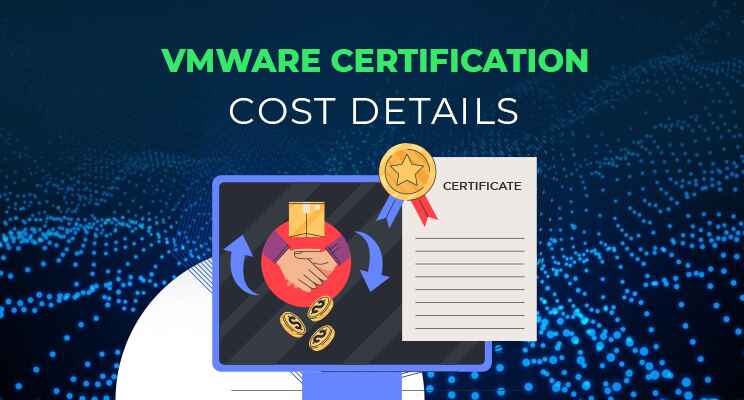Complete Guide to IT Infrastructure Training: Learn VMware, Linux, Cisco & Windows Skills
Complete Guide to IT Infrastructure Training: Learn VMware, Linux, Cisco & Windows Skills
IT infrastructure training In today’s digitally driven world, IT infrastructure plays a crucial role in ensuring business operations run smoothly. From setting up servers and managing networks to securing data and enabling cloud services, skilled infrastructure professionals are in high demand. If you’re looking to build a strong career in this field, the right IT infrastructure training is essential.

This handbook will take you through the most important areas of IT infrastructure courses, including specialized tracks such as VMware training, Cisco data center training, Linux training, and Windows training — the pillars of today's enterprise environments.
What Are IT Infrastructure Courses?
IT infrastructure courses are designed to equip learners with the knowledge and skills required to manage hardware, software, network systems, virtualization technologies, and cloud-based services. These training programs can help beginners understand foundational concepts while also helping professionals advance to architect-level roles.
Whether you’re aiming to become a system administrator, network engineer, or cloud specialist, these courses offer a structured learning path.
Why VMware Training Is Essential
VMware training is centered around virtualization technology — an essential piece of modern data centers and cloud infrastructures. Training in VMware allows you to design and administer virtual machines, make the most of available resources, and enhance operational effectiveness.
Major advantages of VMware training:
Learn installation and configuration of vSphere, vCenter, and ESXi
Get familiar with virtualization techniques applied in cloud infrastructure
Get hands-on experience through labs and simulations
Get ready for VMware Certified Professional (VCP) certifications
VMware is extensively applied in enterprise IT, so this course brings fantastic value to your resume.
Cisco Data Center Training: Master Enterprise Networking
The network forms the backbone of any IT infrastructure. Cisco data center training gives extensive knowledge about networking architecture, switching, routing, and automation. It's great for network engineers, data center administrators, and cloud experts.
Topics taught in Cisco data center courses include:
Mastering Cisco Nexus switches, UCS servers, and ACI architecture
Implementing security and disaster recovery within a data center deployment
Learning concepts such as virtualization, load balancing, and fabric interconnects
Obtaining certifications like CCNA Data Center, CCNP, or CCIE Data Center
Cisco technologies lead enterprise networking, making this an effective certification to advance your career.
Linux Training: The Backbone of Open-Source Infrastructure
Linux training is a requirement for anyone who is interested in IT infrastructure, cloud computing, or security. Since most enterprise environments and cloud providers run on Linux, this capability is required for system administrators and DevOps engineers.
Why Linux training?
Get trained in shell scripting, user administration, file systems, and permissions
Master package management and system services
Get familiar with enterprise Linux distributions such as Red Hat, Ubuntu, and CentOS
Get ready for certifications such as RHCSA, LFCS, or Linux+
Linux knowledge opens doors to system engineering, cloud operations, and even cybersecurity roles.
Windows Training for Enterprise IT Roles
Windows training focuses on Microsoft technologies such as Windows Server, Active Directory, and PowerShell. It’s ideal for those aiming to work in corporate IT departments or support hybrid infrastructures.
With Windows training, you’ll learn:
Installation and administration of Windows Server OS
Configuration of domains, group policies, and user access control
File servers, DNS, DHCP, and remote desktop services management
PowerShell automation and scripting
Microsoft technologies remain commonly used in the enterprise sector, and therefore this is a core skill set within IT infrastructure.
Which Training Path Should You Take?
Selecting between VMware training, Cisco data center training, Linux training, and Windows training is based on your career aspirations:
Need to specialize in virtualization and cloud? Opt for VMware.
Interested in data centers and networking? Begin with Cisco.
Open-source infrastructure and DevOps are more your style? Go for Linux.
Want to work with Microsoft enterprise software? Windows Server training is the way to go.
To develop a balanced IT infrastructure skill set, it's best to learn two or more of these areas.
Final Thoughts
The need for qualified infrastructure professionals only grows as businesses move to cloud, create hybrid spaces, and implement virtualization. IT infrastructure training is the stepping stone towards a secure and lucrative career in technology.
By integrating VMware training, Cisco data center training, Linux training, and Windows training, you can future-proof your skills and be ahead in the competitive landscape of IT careers
